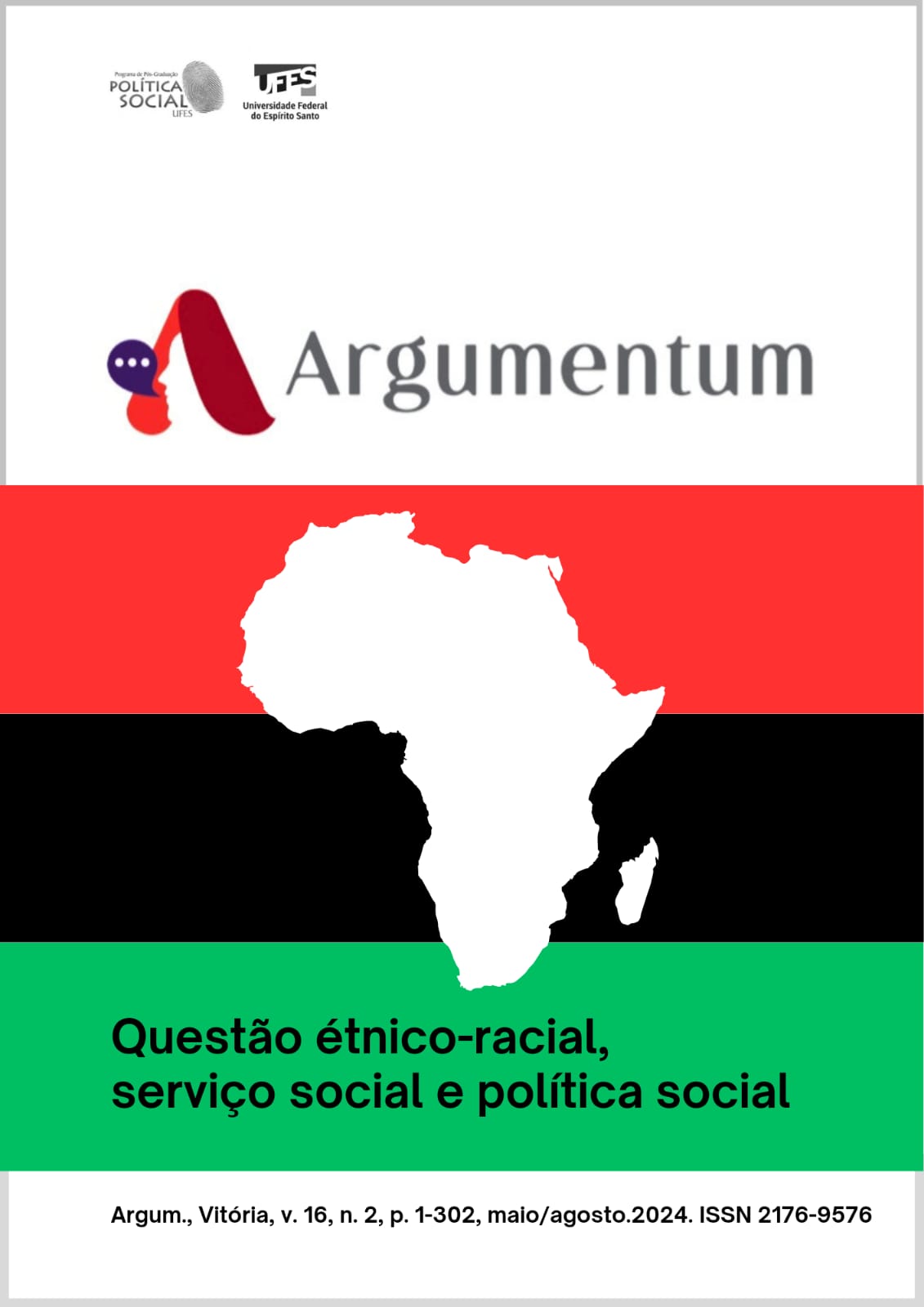O escravizado enquanto ser social: análise crítica do escravismo moderno brasileiro
DOI:
https://doi.org/10.47456/argumentum.v16i2.39903Resumo
Este artigo tem o objetivo de evidenciar a institucionalização do escravismo moderno e a transformação dos seres sociais em escravizados como o ponto de partida para analisar a divisão racial do trabalho no processo histórico brasileiro. A compreensão do escravizado enquanto ser social tem por objetivo fugir das análises que restringem o escravizado à perspectiva de coisa. Busca-se analisá-lo a partir da ontologia do ser social marxista, tendo por fundamento a exploração da força de trabalho escravizada e a institucionalização do escravismo moderno enquanto o modo de produção que predominou no Brasil por mais ou menos quatrocentos anos. Evidencia-se a necessidade de uma compreensão crítica do escravizado enquanto um ser social para se aproximar da gênese da divisão racial do trabalho no escravismo brasileiro.
Publicado
Edição
Seção
Licença
Copyright (c) 2024 Argumentum

Este trabalho está licenciado sob uma licença Creative Commons Attribution 4.0 International License.
Termo de Cessão de Direitos Autorais
Como condição para a submissão, os autores devem concordar com o Termo de Cessão de Direitos Autorais, marcando a caixa de seleção após a leitura das cláusulas.
O(s) autor(es) doravante designado(s) CEDENTE, por meio desta, cede e transfere, de forma gratuita, a propriedade dos direitos autorais relativos à revista Argumentum, do Programa de Pós-graduação em Política Social, Universidade Federal do Espírito Santo - Av. Fernando Ferrari, 514 - Goiabeiras 29075-910, Vitória (Brasil) doravante designada CESSIONÁRIA, nas condições descritas a seguir:
1. O CEDENTE declara que é (são) autor(es) e titular(es) da propriedade dos direitos autorais da OBRA submetida.
2. O CEDENTE declara que a OBRA não infringe direitos autorais e/ou outros direitos de propriedade de terceiros, que a divulgação de imagens (caso as mesmas existam) foi autorizada e que assume integral responsabilidade moral e/ou patrimonial, pelo seu conteúdo, perante terceiros.
3. O CEDENTE cede e transfere todos os direitos autorais relativos à OBRA à CESSIONÁRIA, especialmente os direitos de edição, de publicação, de tradução para outro idioma e de reprodução por qualquer processo ou técnica. A CESSIONÁRIA passa a ser proprietária exclusiva dos direitos referentes à OBRA, sendo vedada qualquer reprodução, total ou parcial, em qualquer outro meio de divulgação, impresso ou eletrônico, sem que haja prévia autorização escrita por parte da CESSIONÁRIA.
4. A cessão é gratuita e, portanto, não haverá qualquer tipo de remuneração pela utilização da OBRA pela CESSIONÁRIA.

